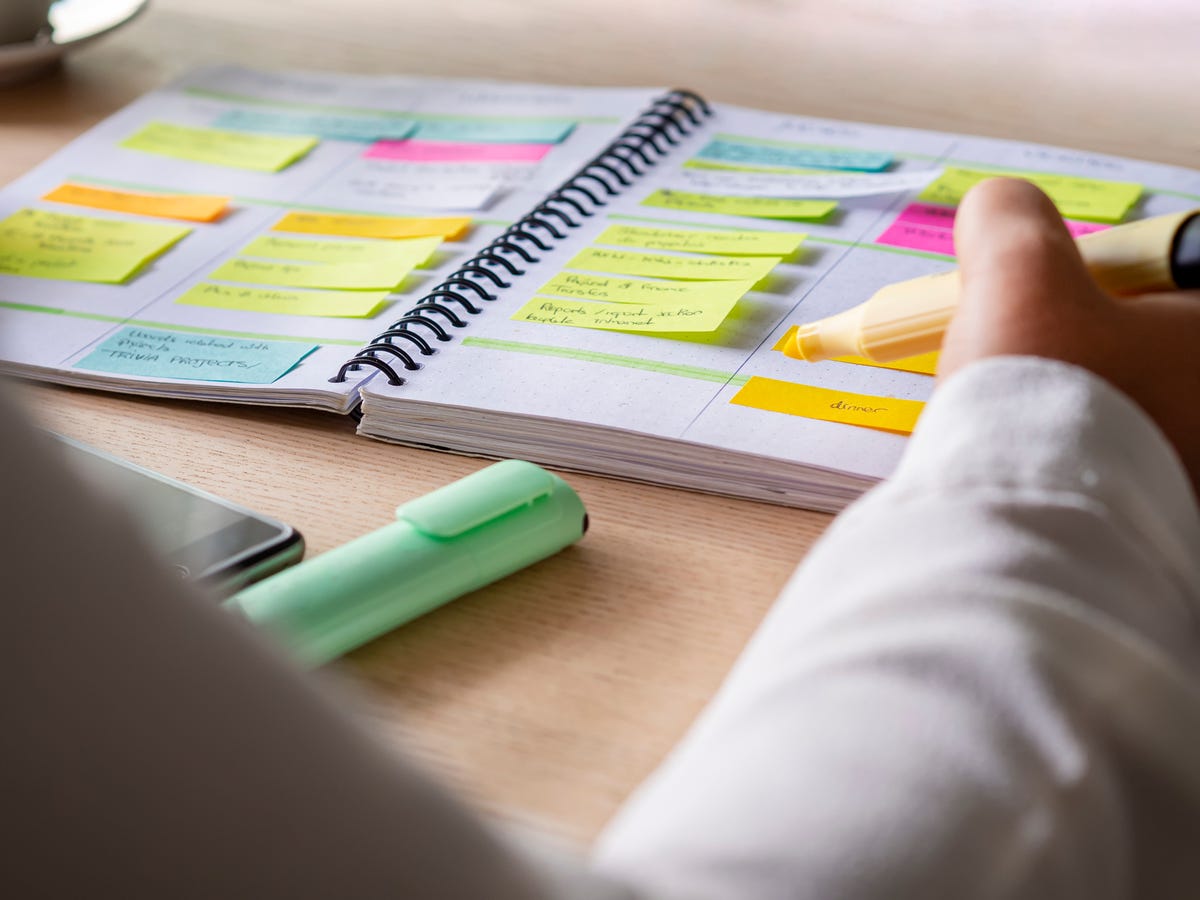Getting Nothing Done? Use These 8 Psychological Tips to Boost Productivity
Humans love to-do lists. Checking things off makes us feel good, and our desire to always achieve results grows. As a result, we put a lot of pressure on ourselves to be productive. But when we get behind on things, anxiety, burnout and stress can occur.
Productivity is more than just finishing a to-do list. It’s a mindset — the more mentally poised we are for productivity, the more we achieve and the less stress we feel. To help you get started, we pulled together a list of eight tips that help transform your mindset and help boost your productivity in work and life.
Did you know that how you eat and how you think can have a big impact on your health, happiness and productivity? Check out these seven foods that make you happy and six thought exercises that can improve your mental health.
Use these tips to boost your productivity
Many think that psychology is only for treating mental health issues, but it also has a lot to say about how we handle the little details of our everyday lives. Here are eight productivity tips you can use to change your perspective and get more done.
1. Start by organizing your thoughts
Where there’s an unorganized mind, there’s usually an unorganized environment… and vice versa. Oftentimes, we feel overwhelmed and unproductive simply because all we can see is the stack of unfinished tasks in front of us.
If that’s where you’re starting, then take a deep breath. Simply plowing through the tasks probably isn’t going to help, and it may make things worse. It’s better to start by clearing your head and organizing your thoughts.
Research from the National Council on Aging has shown that mental disorganization tends to create more stress and impulsive behavior, neither of which helps you be productive. So, before you tackle your to-do list, why not take a moment to think, journal, pray or meditate so you can organize your thoughts? If you start organizing your tasks with a sense of clarity and purpose, you’ll be much more effective in making a plan.
2. Plan out your day (or week)
You probably know the feeling. You work and work but never seem to get anything important done. That’s because you’ve given in to the tyranny of the urgent.
Here’s the truth: You will never finish everything you could possibly do. There’s always something else to tackle or someone else to tell you what needs to be done. Instead of playing whack-a-mole every day, you need a plan that will help you accomplish what’s most important.
Planning your day or your week is an exercise in mental discipline. It requires you to consider what’s most important to you, whether it’s in your work or your personal life, and schedule tasks that reflect those priorities. Think of it as an opportunity to check in with yourself and make sure you’re spending your time well.

Olga PS/Getty Images
3. Start with something easy
If you’re wondering how to be more productive, it’s generally not a good idea to put off the bigger, harder tasks in favor of easy ones. In fact, research from Emory University shows that people who generally tackle big tasks first are more productive overall.
That said, when you’re initially trying to get the wheels of productivity turning, it may help to start with an easy task or two. Checking a few quick things off your list can give you a sense of accomplishment and establish just enough momentum to help you get going.
Once you’ve gotten that rush of accomplishment, though, don’t get stuck on the easy tasks. Take that energy and use it to do something big.
4. Break large tasks into smaller ones
When you turn toward more complex work, it’s easy to get overwhelmed by the effort required. When the finish line feels far off, you may be tempted to give up or just go back to checking off small tasks.
The trick here, according to the research from Emory, is to turn those big tasks into small ones. Take the final goal of your project and split it into small, manageable steps that you can accomplish one by one.
For instance, say you want to plan a huge road trip for your family. You can’t possibly nail down every detail at once, so try breaking it up. Maybe your first goal would be to research your route and places to stay so you can budget for travel expenses. Start there, then move on to the next important task.
Splitting big tasks into small, manageable ones will help you stay motivated to keep going because it provides you with those little moments of accomplishment. And motivation is a key psychological factor in staying productive.
5. Create boundaries for yourself and others
In today’s work environments, we’re constantly distracted. Open workplace designs and digital communication tools make us feel like we must be constantly available to our colleagues. But this steady availability can come at a big cost when it comes to productivity.
Research from the University of California, Irvine demonstrates just how costly even simple distractions can be. Results showed that it takes the average worker over 23 minutes to regain focus after being distracted.
What can we learn from this? If you want to be productive, it’s important to minimize distractions so you can maximize focus. And doing that requires you to set some boundaries. Turn off notifications, log out of social media and let your coworkers know when you’re unavailable. Try it for a week and see how much more you can get done. You might find you’re less stressed when you do take a moment to unwind with a colleague.
6. Ask for help when you need it
Just because you’re becoming a productivity master doesn’t mean you won’t need some help from time to time. Whether you’ve got too much on your plate or need to pass off some tasks that don’t fit your expertise, involving others can help you stay productive now and in the future.
For instance, say you’re bogged down creating spreadsheets that you need for an important project. Your expertise doesn’t lie in spreadsheets, but in designing presentations. If you pass the spreadsheets to a colleague who’s an Excel guru, they’ll do that part of the work better and allow you to focus on creating a great presentation.
Ultimately, delegation can reduce stress and free up mental space so you can put your mind to the tasks that matter most to you.
7. Congratulate yourself when you accomplish things
The road to becoming more productive is a long one, and it takes a lot of mental fortitude to stay the course. Along the way, you’ll accomplish many things, both small and significant. Take time to acknowledge what you’ve done now and then.
If you never stop to give yourself a pat on the back, you risk becoming too focused on staying productive. When you’re always looking to the next thing on your list, you may end up back where you started: overwhelmed and burned out. Celebrate your accomplishments so you can keep your motivation high.

AaronAmat/Getty Images
8. Achieve things for yourself
The best way to avoid getting caught on the endless hamster wheel of productivity is to make sure that you’re including some things you love in the mix.
This isn’t only about taking a breather, although that’s important. Research shows that workers are more productive when they’re happy. Prioritizing some of your own hobbies and interests can refill your tank and help you stay motivated and focused so you do your best work when the time comes.
The bottom line
Following these psychological productivity tips will help you regain focus and get more done. Remember that productivity isn’t everything. Burnout can lead to serious problems with physical and mental health, so it’s important to watch for the signs. When you get obsessed with the daily to-do list, that’s probably a good sign it’s time to take a break. Ultimately, you’ll be more productive in the long run.
Strong mental health is critical for your overall health and well-being. For more insights on how to keep your mind in good shape, check out these tips to relieve anxiety before bed and questions to ask when you’re looking for a therapist.
The information contained in this article is for educational and informational purposes only and is not intended as health or medical advice. Always consult a physician or other qualified health provider regarding any questions you may have about a medical condition or health objectives.
For all the latest world News Click Here

